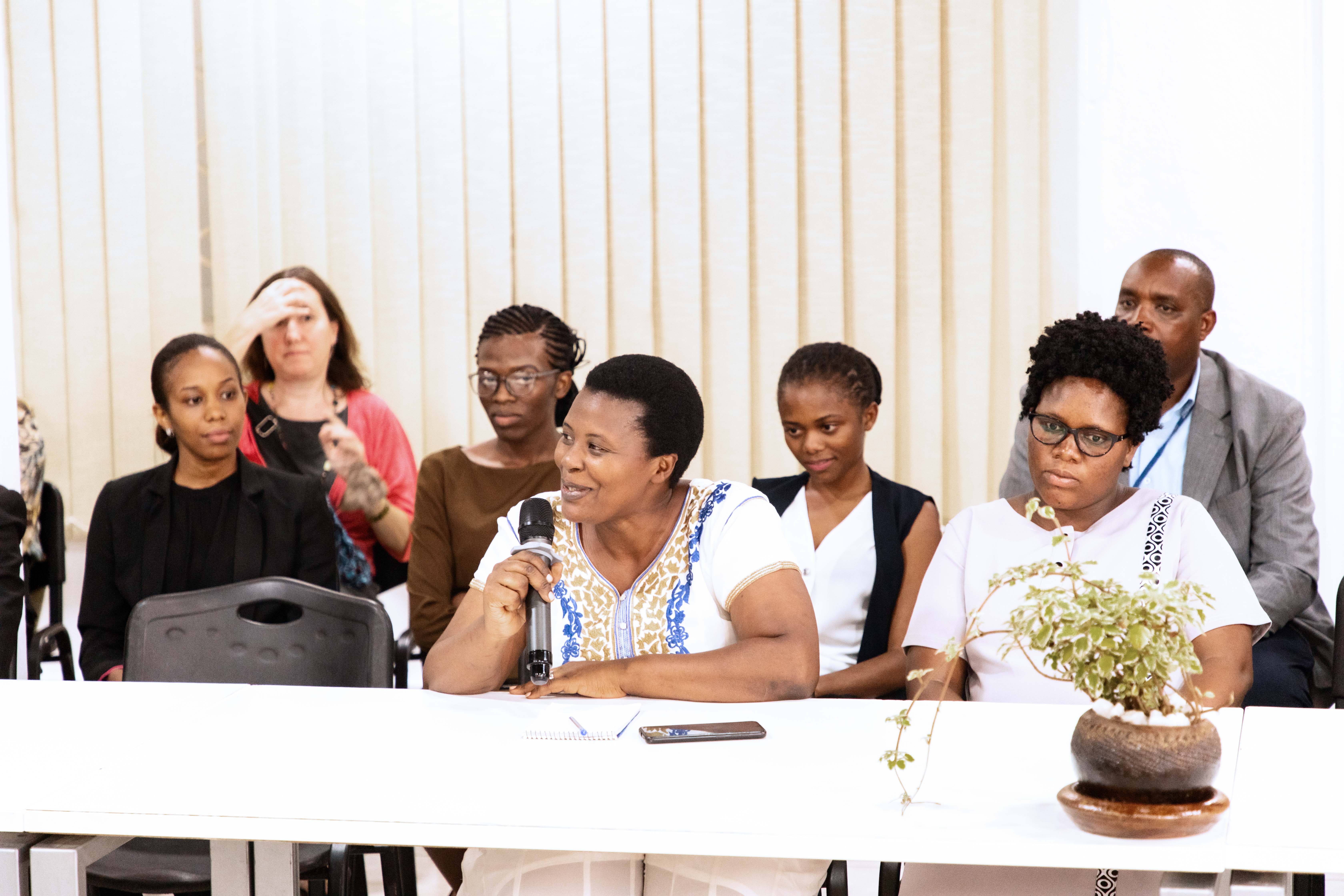By Clement Kirenga
Bridging the gender divide: Rwanda's pursuit of inclusive prosperity in the private sector
July 17, 2023

UNDP Staff discuss crucial affairs at the office
Rwanda has made remarkable progress in reducing gender equality gaps in government through favorable policies and strategies. However, despite having the highest percentage of women in parliament (61.3%) worldwide, women's participation and leadership in private businesses remains low. This situation adversely impacts women, their families, and businesses. To create a new balance, businesses must be accountable for gender equity. By identifying, committing to, and monitoring progress on gender equity in the workplace, employees and businesses stand to benefit.
Women's participation in Rwanda’s labour market is only 48.2%, while men's participation is 65.6%. Furthermore, women occupy only 32% of decision-making positions in the private sector, and they are underrepresented in technical fields that pay higher wages.
But in a hopeful sign, a growing number of private businesses are bridging these gaps and improving their operations through their participation in the Gender Equality Seal Program. Launched in 2018 by the United Nations Development Program, Rwanda's Gender Monitoring Office, and the Private Sector Federation, it provides a roadmap to accountability and has successfully addressed issues such as the gender pay gap, limited representation of women in leadership positions, and sexual harassment in the workplace.
Since the program’s launch, 32 private companies and public institutions have earned Gender Seal Equality Certification, making them pioneers in this regard. However, Rwanda is home to more than 6,000 mid-size and large-businesses in the formal sector alone, and as the economy grows, it is crucial for gender equity to be a driving force in development.
This is not only a matter of social justice; it is also essential for inclusive and robust economic growth. Research by the McKinsey Global Institute shows that advancing women's equality globally could add $12 trillion to global growth.
Moreover, a clear correlation exists between a company's gender inclusiveness and its improved financial performance. Companies that have eliminated gender-based pay gaps and increased the number of women in decision-making positions have witnessed enhanced productivity and profitability. In fact, gender-balanced companies are known to be more innovative, generous, and profitable.
For example, at SORWATHE company in Rulindo district, northern province of Rwanda, tea pluckers experienced a significant increase in productivity when the company established an Early Childhood Development Center (ECD) for employees' children. This not only resulted in higher financial revenues for the company and its employees but also improved the overall quality of life for staff and their children. As one employee explained, before the ECD, they used to leave their children by the roadside and frequently paused work to check on them. However, with the establishment of the ECD, peace of mind increased, and so did productivity.
Other research shows that improving gender equity benefits countries at different stages of economic development. For example, a report from citi bank indicates that reducing gender inequalities in the workplace over the next two decades could add around 6% to GDP in advanced economies. It stands to reason that as Rwanda strives to achieve upper middle-income status by 2035, gender equity will be crucial to success.
Companies recognized by the Gender Equality Seal Certification have taken measures such as establishing breastfeeding rooms at the workplace, increasing female representation in male-dominated jobs, setting targets for women in decision-making positions, implementing sexual harassment policies, and reducing gender pay gaps. Each of these measures on their own is significant. However, their real impact comes when taken together by many different companies and industries.
Such measures not only respect human rights but also create a better working environment, increase productivity, drive gender equity, and ultimately generate more revenue. Rwanda has often demonstrated its leadership in transforming outdated institutions and ways of thinking into forward-looking institutions and empowered individuals. It is now time for businesses to take the next step and be gender-smart and accountable.
Clement Kirenga is the National Coordinator for Inclusive Governance at UNDP Rwanda. He has been leading gender equality initiatives in Rwanda and beyond for more than two decades, including advocating for women’s and girls’ rights through promotion of male engagement and positive masculinities.

 Locations
Locations



